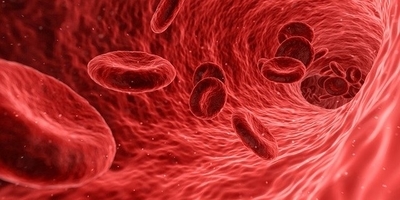Vascular surgery comes in two types—minimally invasive surgery and open surgery. Minimally invasive vascular surgery often involves the expansion of narrow or blocked veins using balloons and stents. Open surgery, on the other hand, creates larger incisions to work on arteries through grafting and blockage removal.
At Evansville Surgical Associates, our surgeons are board certified to provide you with the highest quality care. Dr. Chandra Cherukupalli, Dr. Prasad Gade, Dr. Angela Martin, and Dr. Donald Patterson all specialize in vascular surgery. Together, they’re able to provide you with treatment you can trust.

Types of Minimally Invasive Vascular Surgery
Minimally invasive surgery uses small incisions to perform surgical procedures. Also known as laparoscopic surgery, minimally invasive surgery uses a tiny fiber-optic tool called a laparoscope to perform procedures. A laparoscope has a camera and light on the tip. When inserted through an incision, it sends images to a high-definition video monitor in real-time for surgeons to view.
Minimally invasive techniques can be very helpful when performing vascular surgical procedures. They can allow surgeons to perform both diagnostic and therapeutic procedures in ways that are less stressful for patients’ bodies and minds.
Minimally Invasive Leg Angioplasty
Laparoscopic techniques for vascular surgery are helpful in both diagnostic and therapeutic procedures. This is especially true when it comes to leg angioplasty. Sometimes blood vessels and arteries become clogged and blood is no longer able to flow normally. Surgeons use angioplasty to help clear clogged pathways in the leg and restore natural blood flow.
Minimally invasive leg angioplasty involves using a tiny balloon to open up the clogged blood vessel in the leg. Your surgeon will insert a catheter into the clogged vein or artery. The catheter has a balloon attached to the end of it which inflates to open the blood vessel and allow for blood to flow naturally. The balloon is removed when healthy blood flow has been restored.
Another method of angioplasty is using a stent, which is a tiny tube made of wire mesh material. In this case, your surgeon will expand the clogged artery using the balloon. Once the artery has been expanded, a stent is placed inside the newly-reopened vein to help prevent it from closing up again.
This also helps in the treatment of abdominal aortic aneurysms. With endovascular aneurysm repair, our surgeons are able to place a stent within the abdominal artery to allow blood to flow more easily through the aneurysm. This procedure greatly reduces your time spent in the hospital and in recovery.
Stents and angioplasty tend to focus on certain arteries, including:
- Peripheral arteries
- Carotid arteries
- Mesenteric arteries
- Renal arteries
- Subclavian arteries
Types of Open Vascular Surgery Options
Open surgery is what most people probably imagine when they think of surgical procedures. It involves being put under general anesthesia and your surgeon cutting an incision large enough to see the structures and organs that they’ll need to operate on in the surgery.
Abdominal Aortic Aneurysm Repair
Aortic aneurysms are when a bulge develops in the aorta. The aorta is extremely important since it’s the artery that carries blood away from the heart and down into the chest and torso. If left untreated, the aneurysm can cause the aorta to either rupture or dissect.
- Aortic ruptures are when the aneurysm bursts and causes internal bleeding.
- Aortic dissections are when artery walls become split due to the force of blood flow.
To repair an aortic aneurysm using open surgery, surgeons are able to make an incision to expose and operate on the aorta using grafting techniques.
Arterial Bypass Grafts
Arterial bypass grafts are a way to treat arteries that have become too narrow or clogged. To fix this problem, your surgeon will address the malfunctioning artery by bypassing it. To do this, they will remove a section from a healthy blood vessel, such as one from your leg or chest, and graft it above and below the faulty section to allow blood to flow normally again.
Carotid Endarterectomy
A carotid endarterectomy is performed when a patient is suffering from carotid artery disease. This disease greatly increases your risk of having a stroke, so getting treatment is essential. To perform the procedure, your surgeon will make an incision in your neck and open the carotid artery. They will then remove the blockage with stitches or a patch of artificial or vein material.
Carotid artery disease can be treated in a couple of different ways using minimally invasive surgery. One method is TCAR, short for transcarotid artery revascularization, which temporarily reverses blood flow during the procedure to divert plaque from the brain. CAS, or carotid artery stenting, uses a stent to expand the carotid artery and allow blood to flow in arteries that had been blocked by plaque.
There are many reasons why you may need vascular surgery. Whatever your specific reason may be, it will have something to do with your arteries not working the way that they should. Whatever the reason or necessary treatment, you can trust the board certified surgeons here at Evansville Surgical Associates to provide you with the best possible care.
Finding a surgeon with the knowledge and experience you can trust is important for any type of surgery. Contact us today to see how our surgeons at Evansville Surgical Associates can help you live a happy, healthy life.
Established in 1969, Evansville Surgical Associates celebrates 50 years of providing leading-edge comprehensive and compassionate surgical care. Learn more about our physicians and our practices by visiting our website, or by calling us at 812.424.8231 or 800.264.8231.



